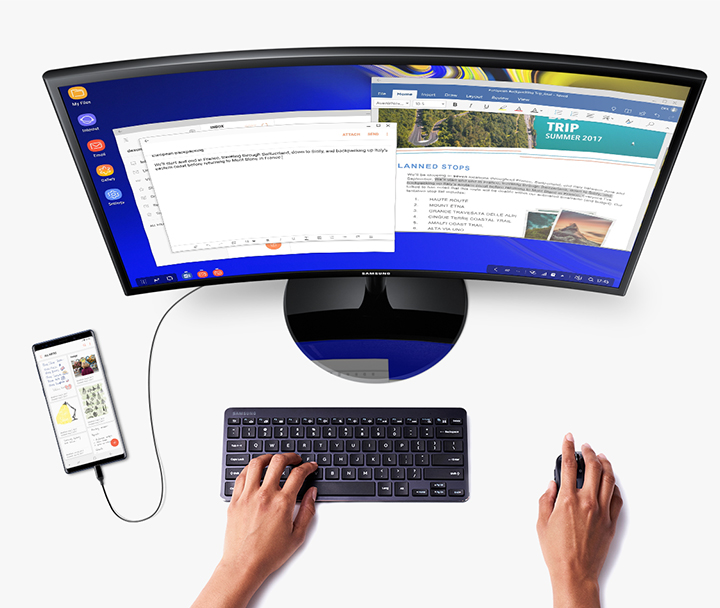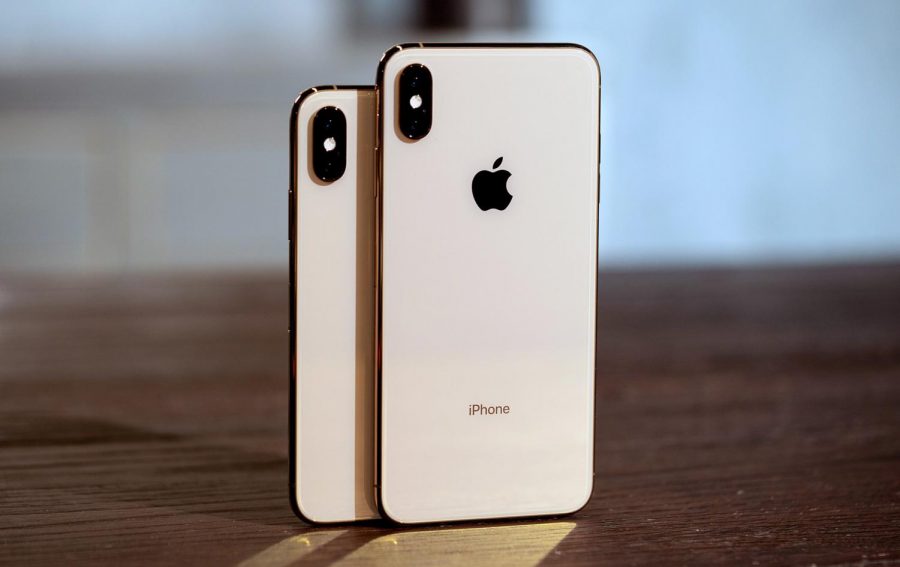Apple Needs a New Breakthrough. What Will It Be?
In early January, Apple, Inc. revised its initial forecast for the first quarter of 2019 from $89-93 billion in revenue to $84 billion, citing disappointing iPhone sales in particular. In a letter to investors, CEO Tim Cook wrote:
“Lower than anticipated iPhone revenue, primarily in Greater China, accounts for all of our revenue shortfall to our guidance and for much more than our entire year-over-year revenue decline. In fact, categories outside of iPhone (Services, Mac, iPad, Wearables/Home/Accessories) combined to grow almost 19 percent year-over-year.”
It makes sense that total revenue has decreased despite growth in Apple’s other product categories because the iPhone has represented between 56 and 70 percent of the company’s total revenue for the past four years. Apple is utterly dependent on it.
Smartphones in general — not just the iPhone — seem to be reaching their ultimate form. Year-to-year hardware improvements are increasingly iterative, and most phones from the past two or three years remain so capable that fewer feel the need to upgrade on a regular basis. Apple hasn’t been the only company impacted by this pattern; Samsung had to discount the Galaxy S9 line just months after its release due to poor sales.
To compensate, Apple has increased the prices of its phones, beginning with the $1,000 iPhone X and continuing this year with the introduction of the larger iPhone XS Max, which starts at $1,100. Their most affordable offering, the iPhone XR, is $749. That’s $100 more than the cheapest iPhone was two years ago. These price increases only further lengthen the average upgrade cycle.
Because the iPhone makes up such a massive chunk of Apple’s revenue, its decline is leading some analysts to believe Apple needs to make another of its signature consumer-technology breakthroughs. The question is: what might that breakthrough be?
Some have suggested that Apple’s services division — which includes iTunes, Apple Music, the App Store, iCloud, Apple Pay, and more — is the company’s future. As of summer 2018, Apple Music reportedly has more U.S. subscribers that its biggest music-streaming rival, Spotify. Apple is also likely to launch a news and magazine subscription service in the coming months, which it could bundle with Apple Music and an upcoming video streaming service as an all-encompassing media experience.
But that’s not nearly as exciting as a revolutionary new piece of hardware would be, and it’s doubtful that a few streaming services (which will have to compete with established giants like Netflix) will be lucrative enough to make up for the iPhone’s slump. Apple needs something more creative.
In 1984, Apple released the original Macintosh, introducing the world to the graphical user interface (GUI), which was perhaps the greatest revolution in computing until the invention of the Internet. No longer did users need to learn to write code to use a computer; instead, they could use a mouse to visually navigate the window-based interface we still use today.
But Apple didn’t invent the GUI; researchers at Xerox PARC did. Apple rarely invents whole new categories of electronic devices. Its most adored products, in fact, are more polished, accessible versions of other companies’ great ideas. The iPod didn’t invent the mp3 player, but it was easily the most capable and easiest to use upon release. The iPhone wasn’t the first smartphone, but it was the first to adopt an all-screen, touchscreen design. The MacBook Air wasn’t the first portable laptop, but it hit the perfect balance of lightness and capability to be the ideal PC for non-power users.
I think Apple’s next big thing is right under our noses. In 2017, Samsung launched a feature called DeX with its Galaxy S8 smartphones. DeX allows Samsung’s phones to power a desktop interface when hooked up to an external monitor. This may not seem exciting, but its implications are enormous. DeX and similar software from other companies would allow smartphones to play the role of both phone and laptop, thereby negating the need for the latter. In short, smartphones could replace computers.

Until recently, the main roadblock to this massive potential shift in the consumer electronics market was processing speed. Mobile chips from Apple and Qualcomm were not as powerful as Intel’s desktop-class processors, which completely dominated the PC market. However, Intel’s releases have become less frequent and less exciting in recent years. Mobile chips are catching up.
Apple’s newest iPad Pro, powered by Apple’s custom A12X processor, is more powerful than the company’s lower-end laptops and nears the speeds of even its most powerful MacBook Pro machines, all of which are powered by Intel chips. This has some wondering if future MacBooks will also adopt the company’s own chipsets, but I wonder if Apple’s ambitions are even grander.
If Apple were to combine its best-in-class processors with its own version of Samsung DeX, it could theoretically turn the iPhone into an all-in-one computing device. It would function just like any other smartphone by default, but power a desktop experience reminiscent of macOS when connected to a portable monitor and keyboard.
The potential boon in this for Apple would be the cost. Instead of having to buy both a smartphone and a laptop, both of which are expensive but currently necessary for most working people, the average consumer would only have to purchase one device — an iPhone — to cover all their computing needs. Apple could jack up the price of their phones to around $1500, then charge another $300 or so for a combination monitor and keyboard.
Consumers would flock to Apple despite that substantial $1800 cost, though, because it is substantially cheaper than buying a flagship phone and laptop. To purchase Apple’s most affordable new iPhone, the XR; and laptop, the MacBook Air, costs just under $1950. The iPhone XS and newest 13-inch MacBook Pro total $2,800.
In short, Apple’s next big breakthrough might be to kill off and replace an entire category of consumer electronics — the laptop — rather than create a new one.

After writing for The Banner as a junior, Duncan Glew '19 is excited to be co-managing The Banner this year with fellow senior Hannah Triester. Outside...



